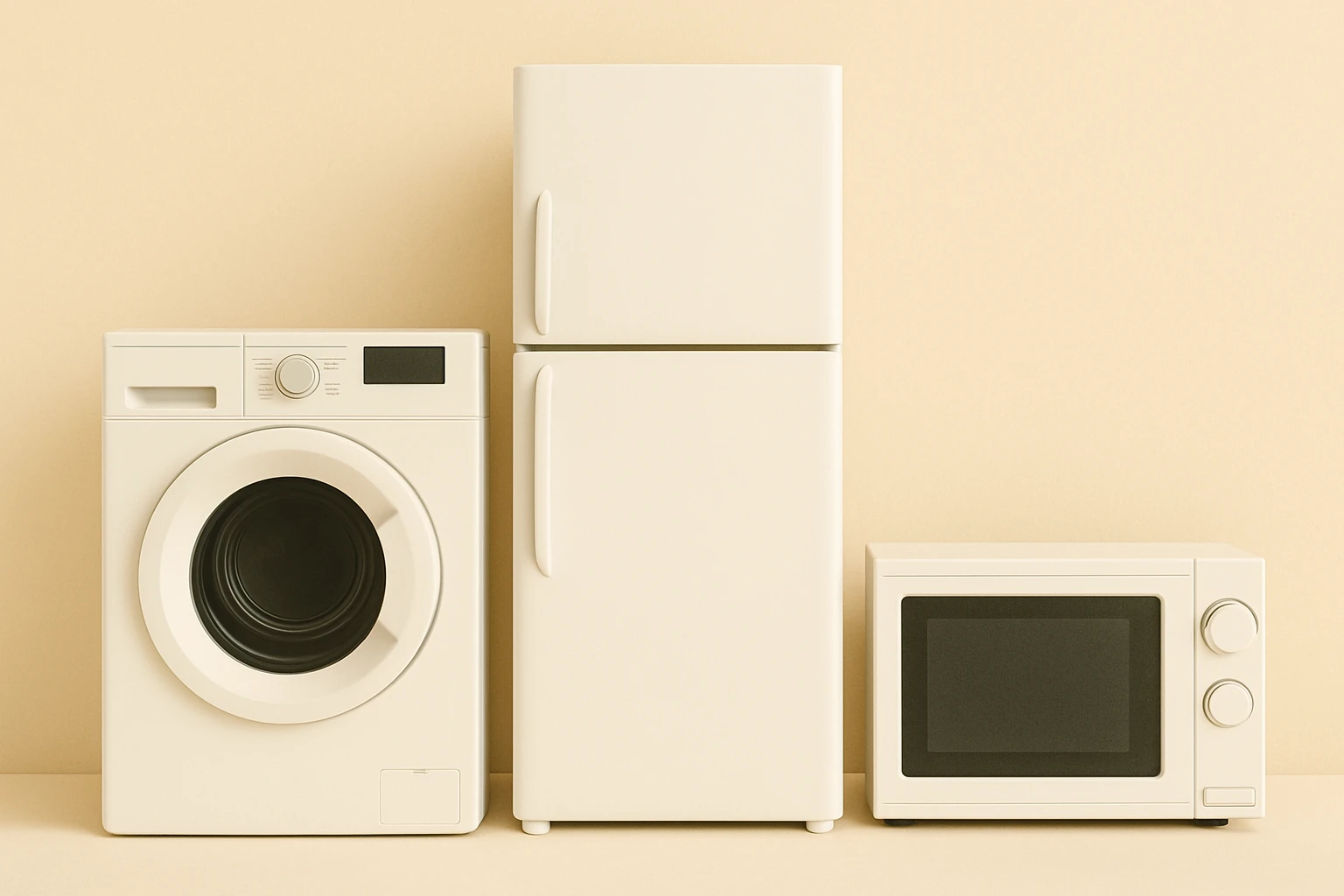Powering a Sustainable Future, One Appliance at a Time: Exploring the Value of Energy Efficiency

In our modern lives, appliances are indispensable, silently working to keep our food fresh, our homes comfortable, and our chores manageable. However, this convenience often comes with an environmental cost in the form of energy consumption. As awareness of climate change and the desire for sustainable living grow, the spotlight naturally turns to solutions that can mitigate this impact. Enter energy-efficient appliances – but are they truly worth the investment?
This exploration delves into the world of energy-efficient appliances, examining their benefits from both an environmental and an economic perspective. Our aim is to provide you with valuable insights that will not only educate but also encourage and guide you in making choices that align with a more sustainable future for your home and the planet.
Understanding Energy Efficiency: More Than Just a Label
When we talk about energy-efficient appliances, we're referring to those designed to perform their functions while consuming less energy compared to standard models. This efficiency is often indicated by energy rating labels, such as the Energy Star certification in many parts of the world. These labels provide a clear benchmark, allowing consumers to easily identify appliances that meet specific energy-saving criteria.
However, energy efficiency goes beyond just a sticker. It's about innovative design, advanced technology, and a focus on minimizing energy waste. This can involve better insulation in refrigerators, more efficient motors in washing machines, or optimized heating elements in ovens. The result is an appliance that accomplishes its task using fewer kilowatt-hours, translating to both environmental benefits and potential cost savings.
The Environmental Imperative: Reducing Our Carbon Footprint
The energy that powers our appliances often comes from sources that contribute to greenhouse gas emissions. By choosing energy-efficient appliances, we directly reduce our demand for this energy, thereby lessening our individual and collective carbon footprint. This is a crucial step in combating climate change and its associated environmental consequences.
Consider the cumulative impact: if a significant number of households switched to energy-efficient refrigerators, the overall reduction in energy consumption and associated emissions would be substantial. This ripple effect highlights the power of individual choices in contributing to a larger, positive environmental outcome. Furthermore, reduced energy consumption can also lessen the strain on natural resources used in energy production.
The Economic Advantage: Savings That Add Up
While the initial cost of an energy-efficient appliance might sometimes be slightly higher than a standard model, the long-term economic benefits can be significant. These appliances are designed to consume less electricity or gas over their lifespan, leading to lower utility bills.
Think about a refrigerator that uses 30% less energy than a conventional one. Over its 10-15 year lifespan, the accumulated savings on your electricity bill can easily outweigh the initial price difference. Similarly, an energy-efficient washing machine that uses less water and electricity will result in lower water and energy costs with every load.
To truly assess the "worth" of an energy-efficient appliance, it's essential to consider the total cost of ownership, which includes the purchase price plus the cost of running the appliance over its lifetime. Often, the lower operating costs of energy-efficient models make them the more financially sound choice in the long run.
Beyond Energy: Other Sustainability Benefits
The advantages of energy-efficient appliances often extend beyond just energy savings:
- Water Conservation: Some energy-efficient appliances, like washing machines and dishwashers, are also designed to use less water, contributing to water conservation efforts.
- Longer Lifespan: Often, energy-efficient appliances are built with higher-quality components and more robust designs, potentially leading to a longer lifespan compared to less efficient models. This reduces the frequency of replacements and the associated environmental impact of manufacturing and disposal.
- Quieter Operation: In many cases, the advanced engineering that contributes to energy efficiency also results in quieter operation, enhancing the comfort of your home environment.
Making the Switch: A Practical Guide
Feeling inspired to embrace energy efficiency in your home? Here are some practical steps to guide you:
- Identify Energy Hogs: Consider which of your current appliances are older and likely less efficient. Appliances like refrigerators, freezers, and air conditioners, which run continuously, can be significant energy consumers.
- Look for Energy Rating Labels: When purchasing new appliances, pay close attention to energy rating labels like Energy Star. These labels provide a clear indication of the appliance's energy performance. Compare different models based on their energy consumption figures.
- Consider Long-Term Costs: Don't just focus on the upfront price. Factor in the estimated annual energy consumption and calculate the potential savings over the appliance's expected lifespan. Many online calculators can assist with this.
- Take Advantage of Incentives: In some regions, governments or utility companies offer rebates or tax credits for purchasing energy-efficient appliances, further reducing the initial cost. Research what incentives might be available in your area.
- Smart Usage Habits: Even with energy-efficient appliances, your usage habits matter. For example, keeping refrigerator doors closed, running dishwashers and washing machines with full loads, and utilizing energy-saving modes can further maximize efficiency.
The Verdict: An Investment in Our Future
So, are energy-efficient appliances worth it? The answer, viewed through the lens of sustainability and long-term economics, is a resounding yes. They represent a tangible way to reduce our environmental impact, lower our utility bills over time, and often enjoy other benefits like water conservation and quieter operation.
Choosing energy-efficient appliances is more than just a purchase; it's an investment in a more sustainable future for our homes and the planet. It's a step towards decoupling our modern conveniences from excessive energy consumption and embracing a way of living that is both comfortable and environmentally responsible. As technology continues to advance, energy-efficient options will likely become even more prevalent and accessible, making the choice not just worthwhile, but increasingly essential for a sustainable tomorrow.
Related Blogs

5 Home Decor Trends That Nurture Your Space and the Planet
Insights on 5 home decor trends that are also earth-friendly in a sustainable way.

Laying the Foundation for a Greener Home: Your Eco Starter Kit
Insights on building an eco starter kit for your home in a sustainable way.

Step Softly on the Earth: Upgrading Your Home with Natural Floor Rugs
Choose biodegradable and non-toxic jute, organic cotton, or wool rugs over synthetic options.

Clean Laundry, Clear Conscience: Sustainable Swaps for Conventional Detergents
Switch to soap nuts, eco-enzyme cleaners, or plant-based detergents for toxin-free laundry.

Breathing Easier, Living Greener: The World of Eco Paints and Finishes for a Healthier Home
Insights on eco paints and finishes for a healthier home in a sustainable way.

Dreaming of a Greener Sleep: Choosing Natural Mattress Toppers for a Healthier Bed
Upgrade your sleep with non-toxic, breathable, and biodegradable latex, organic cotton, or wool toppers.
Stay in the Loop
Get tips and insights tailored to your interests — no spam, just sustainability.